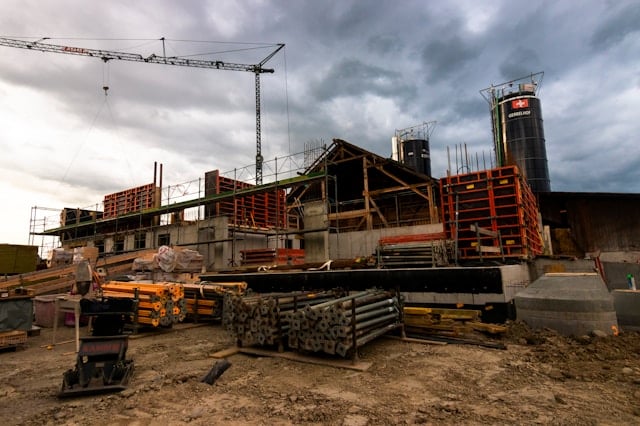How to Ensure Ethical Sourcing of Building Materials in UK Real Estate Developments?

Constructing a building is a complex task involving an intricate interplay of forces. Beyond the visible architectural grandeur, intricate design, and engineering feats, there’s a deeper layer that dictates how a building interacts with its surroundings. Materials utilised in the construction process play a pivotal role in this regard. With a heightened focus on sustainability, energy use, carbon footprints and climate resilience, the construction sector has been forced to reassess the materials it uses.
As we progress through the digital age, we are becoming more aware of the impact that industries have on our planet. For the construction industry, the challenge is to build structures that are both functional and responsible to the environment. By adopting ethical sourcing practices, builders can ensure they construct buildings that are not only structurally sound but also sustainable.
A découvrir également : What Are the Key Steps for Conducting Due Diligence on Historic Properties in Rural UK?
Ethical Sourcing and the Building Industry
Ethical sourcing, in the context of building materials, refers to the practice of sourcing materials in a responsible and sustainable manner. This means paying attention to the environmental impact, human rights issues, and cultural implications involved in the extraction, manufacture, and distribution of materials.
A study published in the Journal of Construction and Building Materials highlighted the importance of ethical sourcing in the industry. The review revealed that buildings utilising responsibly sourced materials demonstrate superior performance, especially in terms of energy efficiency and waste reduction.
A voir aussi : What Innovative Financing Options Are Available for First-Time Commercial Property Investors in the UK?
The adoption of ethical sourcing also aligns the construction industry with global efforts to combat climate change. Accounting for nearly 40% of global carbon emissions, the industry has a significant role to play in reducing carbon footprints. If builders switch to responsibly sourced materials, they can significantly reduce the climatic impact of their projects.
The Role of Transparency in Ethical Sourcing
Achieving ethical sourcing in the construction industry isn’t easy. It demands a comprehensive supply-chain review and a commitment to transparency. Transparency refers to clear and comprehensive disclosure of information related to the sourcing, manufacture, and distribution of building materials.
According to a Google-sponsored study on supply chain transparency, businesses that adopt transparent practices exhibit better performance and enjoy greater customer trust. The study suggested that businesses, including construction companies, should take steps to disclose information about their supply chains. This includes revealing the sources of materials, labour conditions at manufacturing units, and the environmental impact of their operations.
Transparency not only promotes ethical practices but also enables companies to identify inefficiencies in their operations. This, in turn, can help them improve performance and reduce waste.
Tools for Encouraging Ethical Sourcing
Fortunately, numerous tools are now available to help construction companies adopt ethical sourcing practices. For instance, the Building Research Establishment (BRE) has developed a standard known as BES 6001 that provides a framework for responsible sourcing.
The BES 6001 standard covers various aspects of responsible sourcing, including organisational governance, supply chain management, and environmental and social factors. Companies can obtain BES 6001 certification by demonstrating adherence to these principles. This certification serves as a testament to the company’s commitment to ethical sourcing, thereby enhancing its reputation among clients and stakeholders.
Apart from BES 6001, builders can also refer to guidelines provided by international bodies such as the United Nations and the World Green Building Council. These guidelines offer comprehensive insights into sustainable building practices and ethical sourcing of materials.
The Impact of Legislation
Legislation also plays a vital role in promoting ethical sourcing in the construction industry. The UK Government, for instance, has introduced several regulations aimed at reducing the environmental impact of buildings. These regulations mandate the use of responsibly sourced materials in public sector buildings.
In addition to regulatory mandates, the government also provides incentives for companies that adopt ethical sourcing practices. For instance, buildings that meet certain sustainability criteria are eligible for tax breaks and other financial incentives.
Furthermore, the government often collaborates with industry bodies and scholars to develop standards and guidelines for ethical sourcing. These collaborations result in comprehensive guidelines that serve as benchmarks for the industry.
In conclusion, ethical sourcing is no longer an optional practice for the construction industry. It is an essential requirement to ensure sustainability and combat climate change. With a commitment to transparency, the use of tools and standards, and adherence to regulations, the industry can ensure that every building is a testament to sustainable and responsible construction.
Incorporating Sustainable Development into Ethical Sourcing
In the quest for ethical sourcing of building materials, it is crucial to consider the tenets of sustainable development. Sustainable development involves meeting the needs of the present without compromising the ability of future generations to meet their own needs. This concept can be applied in the construction industry through responsible sourcing of materials that do not exhaust natural resources or cause irreversible damage to the environment.
In a recent Google Scholar review of sustainable construction techniques, the focus was on the life cycle of building materials – from production to disposal. The review emphasized that sustainable construction entails not just sourcing materials ethically, but also managing their life cycle in a sustainable way. This includes optimizing the use of resources, minimizing waste, and prioritizing recycling and reuse.
The Building Research Establishment Environmental Assessment Method (BREEAM) offers guidelines for sustainable construction, advocating for the use of materials that have a lower environmental impact across their life cycle. BREEAM construction techniques, combined with ethical sourcing practices, can result in structures that are robust, energy-efficient, and environmentally-friendly.
In essence, sustainable development should be an integral part of ethical sourcing. It promotes the use of materials that are not only sourced responsibly but also managed sustainably throughout their life cycle.
Collaborative Efforts in Promoting Ethical Sourcing
Promoting ethical sourcing in the construction industry requires a collective effort from different stakeholders, including government bodies, construction companies, and environmental organizations. This collaboration fosters shared responsibility in ensuring a sustainable built environment.
Supply chain management is one area where collaboration can have a significant impact. By working together, stakeholders can establish comprehensive traceability systems that track materials from the source to the site. This promotes transparency, allows for the identification and correction of unethical practices, and ensures that only responsibly sourced materials are used in construction projects.
Research institutions also play a crucial role in promoting ethical sourcing. For instance, according to preprints.org, scholars are increasingly exploring ways to incorporate sustainability principles into construction practices. Their findings provide valuable insights that can be used to refine sourcing strategies, improve supply chain management, and enhance the environmental performance of buildings.
Government bodies, on their part, enforce building regulations that promote responsible sourcing and sustainable construction. In England and Wales, for instance, the Domestic Building Services Compliance Guide mandates the use of energy-efficient materials in domestic buildings.
In conclusion, the ethical sourcing of building materials is a shared responsibility. Through collaboration, stakeholders can promote transparency, foster sustainable development, and ultimately contribute to the fight against climate change. The construction industry, therefore, has an indispensable role in shaping a sustainable future for our planet.
